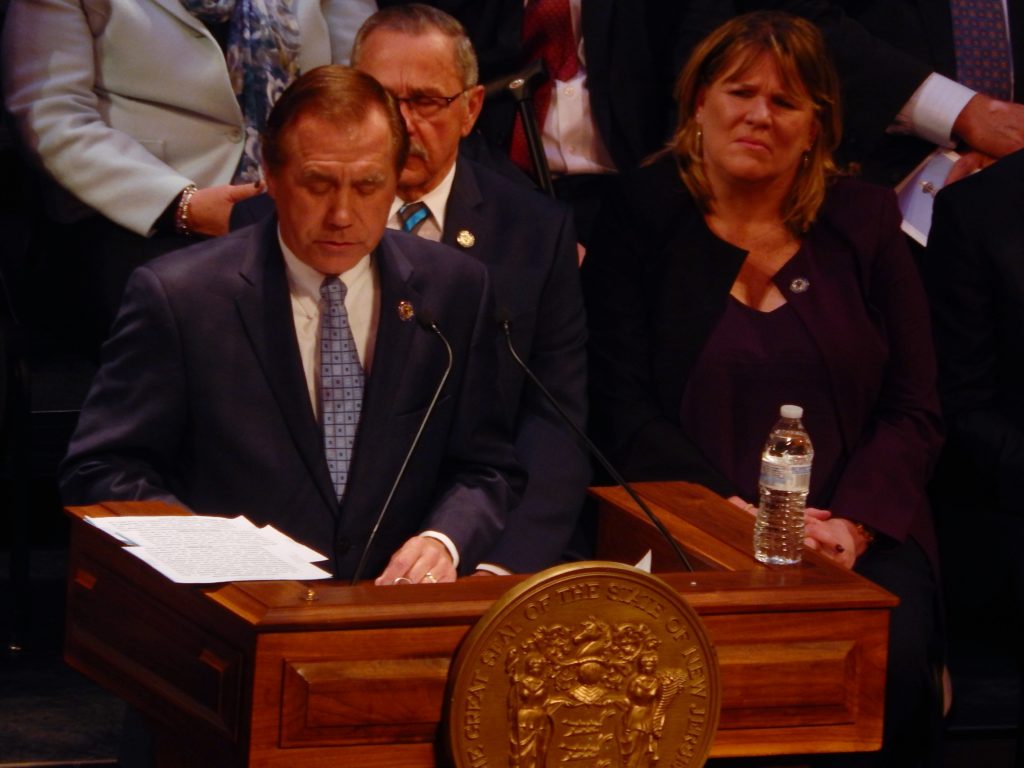Speaker Coughlin Sets Landmark Anti-Discrimination, Anti-Harassment Policy for New Jersey General Assembly, Measure to Move Next Voting Session

Speaker Coughlin Sets Landmark Anti-Discrimination, Anti-Harassment Policy for New Jersey General Assembly, Measure to Move Next Voting Session
(TRENTON) – Strengthening protections for New Jersey General Assembly employees, Assembly Speaker Craig Coughlin announced Wednesday a resolution detailing its Anti-Discrimination and Anti-Harassment Policy will be considered and voted on by the full body Thursday, September 27 during the voting session. The legislation underscores the commitment to providing its members, employees and third parties with a work environment free from all forms of discrimination and harassment.
Speaker Craig Coughlin (D-Middlesex): “The time to have in place a comprehensive anti-discrimination and anti-harassment policy that applies to everyone connected in any way to the General Assembly is long overdue. This new mandate illustrates that we fully recognize there must be zero tolerance for any form of harassment or discrimination. Every legislator and every staff member deserves a safe, inclusive and welcoming workplace. This measure represents the most rigorous policy possible.”
Minority Leader Jon Bramnick (R-Union): “It is important that the legislature leads by example. A modern more expansive policy will help to ensure we’re doing everything we can to prevent harassment and protect victims.”
The resolution acknowledges that acts of discrimination/harassment undermine the integrity of the employment relationship, compromise equal employment opportunity, debilitate morale and interfere with work productivity. The policy would apply to all members and employees of the General Assembly and third parties, including partisan staff members, district office staff and the Assembly office of the clerk staff members. Third parties may include lobbyists, newspersons, and member of the general public who conduct business at the state capitol or with the General Assembly.
The new, more comprehensive policy acknowledges the social and cultural diversity of today’s workplace environment. The policy lists specific protected categories of which discrimination and harassment of are prohibited and will not be tolerated.
Assembly Conference Leader Shavonda Sumter (D-Bergen, Passaic): “An update to the anti-discrimination and anti-harassment policy is long overdue. I applaud the Speaker for making this a priority during his first six months and going much further than the policy currently in place. It’s plain and simple: discrimination and acts of harassment will not be condoned from or against an employee of the General Assembly.”
Assemblywoman Annette Quijano (D-Union): “We’ve seen the media stories on what happens when anti-discrimination and anti-harassment policy isn’t made clear in the workplace. Having a current, comprehensive policy protects the social and cultural diversity of an office. I believe our work has produced a strong and more effective policy for the General Assembly staff and partners.”
Assemblywoman Pamela Lampitt (D-Camden, Burlington): “Earlier this year, New Jersey made history by signing the Diane B. Allen Equal Pay Act into law – a piece of legislation that significantly strengthened protections against employment discrimination. On that day, we sent a message that we will not tolerate anything less than ensuring that women in our state are treated fairly, and most importantly, equally in the workplace. The Assembly’s anti-discrimination and anti-harassment policy further solidifies our commitment to that message. I am proud to be a member of the New Jersey Legislature that, in light of recent stories in the news and across the country, is taking much-needed action. ”
Assemblywoman Joann Downey (D-Monmouth): “It is critically important for everyone, regardless of race, gender, gender identity, sex, sexual orientation, ethnicity, religion or creed to feel safe in the workplace. We have made significant strides over time to provide women and minorities with workplace protections so they can feel secure and comfortable in their positions. With the advancement of the #MeToo, #TimesUp and numerous other movements around this country, our society has shown that we will no longer tolerate those who feel harassment and discrimination are acceptable. The General Assembly’s new anti-discrimination and anti-harassment policy shows how seriously we take these issues. Anyone who ignores or violates this policy will not be able to avoid the consequences they will undoubtedly face.”
Assemblywoman Gabriela Mosquera (D-Camden, Gloucester): “I fully support this anti-discrimination and anti-harassment policy not just as a lawmaker, but as a woman, as a wife and as a mother. It’s important to me that a discrimination and harassment policy leaves no gray areas, no wiggle room and no question as to whether this type of behavior is tolerated. Our policy accomplishes that, because it is comprehensive and ensures that the Assembly is a work environment where people are confident that such behavior is taken seriously, investigated and addressed promptly and without the fear of retaliation.”
Assemblywoman Nancy Munoz (R-Union): “People need to understand we live in a much different world; and if behavior makes someone uncomfortable, it needs to be stopped. Every single one of us deserves a workplace that is free from harassment. I applaud any effort to improve training, prevent discrimination and protect victims and that is why I support making it a legislative policy.”
The full policy is attached.
[pdf-embedder url="https://www.insidernj.com/wp-content/uploads/2018/09/Anti-Discrimination-and-Anti-Harassment-Resolution.pdf" title="Anti-Discrimination and Anti-Harassment Resolution"]





